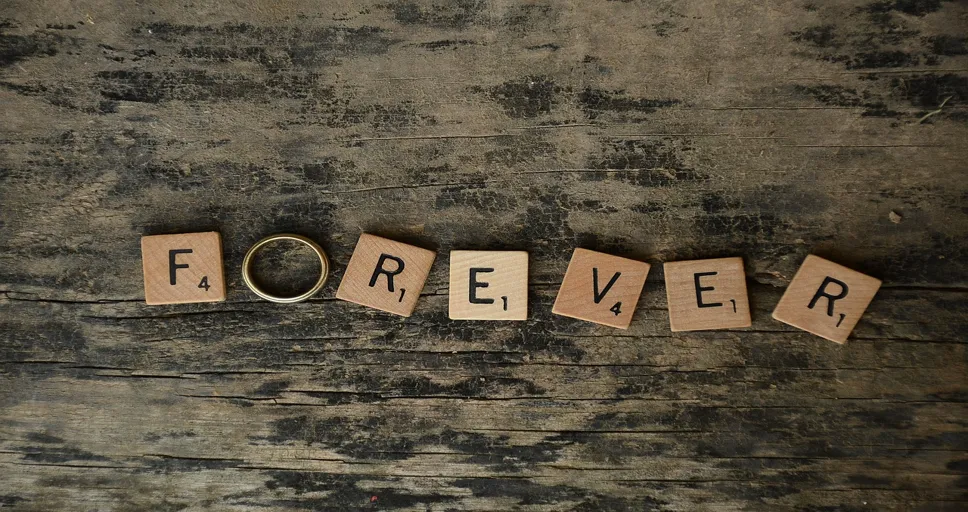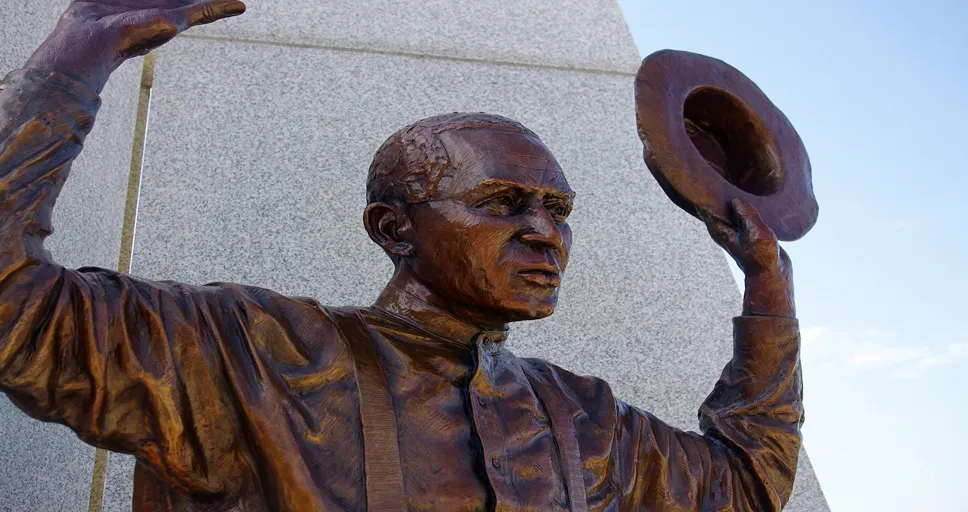“I regret divorcing my husband and want to reconcile”—if this phrase has been running through your mind on a loop, you’re not alone. Sometimes, in the rush to move on, we forget that relationships are complicated, messy, and not always as simple as “goodbye forever.” Maybe you’ve realized that life without him doesn’t feel as fulfilling as you expected, or perhaps you’ve started to understand the role you both played in the breakdown of the marriage. Whatever the reason, the desire to reconcile after a divorce is a brave and deeply personal step.
This journey of rekindling a relationship post-divorce can feel like wandering through a maze of mixed emotions, confusion, and even fear of rejection. But here’s the good news: regret doesn’t have to be the end of your story. In fact, it might just be the beginning of a whole new chapter—one filled with growth, understanding, and, hopefully, a stronger bond than before.
In this article, we’ll walk through the steps to rebuild your relationship, offering practical advice and insights to help you navigate this delicate process with clarity and confidence. Whether it’s figuring out how to talk to your ex or understanding your own emotional readiness, we’ve got you covered.
- Reflect on why you want to reconcile: Is it genuine love or loneliness?
- Take accountability for your role in the marriage breakdown.
- Gently reach out to your ex, gauge his reaction, and approach the situation with patience.
- Be prepared for any outcome, including rejection.
- Ensure your desire to reconcile isn’t based on romanticized memories or fear of starting over.
- Communicate openly and honestly if both are interested in rebuilding the relationship.
Table of Contents
- 1 How to Approach I Regret Divorcing My Husband and Want to Reconcile After Divorcing Your Husband
- 2 Understanding the Root of Your Regret
- 3 Assessing Your Emotional Readiness to Reconcile
- 4 How to Initiate a Conversation with Your Ex-Husband
- 5 Rebuilding Trust and Communication After Divorce
- 6 Seeking Professional Help to Support Reconciliation
- 7 When You Don’t Want a Divorce: My partner wants a divorce but I don’t.
- 8 Frequently Asked Questions
- 9 Conclusion: Moving Forward with Hope and Realism
How to Approach I Regret Divorcing My Husband and Want to Reconcile After Divorcing Your Husband

So, you’ve found yourself in the “I regret divorcing my husband and want to reconcile” club. First of all, welcome! It’s a complicated place to be, but knowing that you want to reconcile is a huge step. Now, the real question is: how do you even begin to approach something like this? The good news is, you’re not the first person to feel this way, and there are ways to navigate this emotional rollercoaster with some level of grace and sanity intact.
Start by Giving Yourself a Reality Check
Before you go running back into his arms like a scene from a rom-com, take a deep breath. Ask yourself: Why do I really want to reconcile? Is it loneliness talking, or are you genuinely realizing that you’re better together? Sometimes, we get caught up in the nostalgia of what was, forgetting the reasons why the marriage didn’t work out in the first place. Reflect on whether the problems that led to the divorce are things that can realistically be worked through.
Also, think about how much time has passed. If it’s only been a few weeks or months since the divorce, emotions might still be running high. Allow yourself time to process and assess whether this is something you truly want, rather than a temporary emotional response. It’s okay to have regrets, but it’s important to distinguish between regret and a real desire for reconciliation.
Take Ownership of Your Role
It takes two to tango—or in this case, divorce. If you’re serious about rebuilding a relationship with your ex, it’s essential to take an honest look at your own actions during the marriage. Were there things you could have done differently? Are there patterns you’re willing to change? Acknowledging your part in the breakdown of the relationship will not only help you grow as a person but will also show your ex that you’re committed to making this work.
Test the Waters (Gently)
So, you’re confident that the desire to reconcile isn’t just a fleeting thought and that you’re willing to put in the work. Now, how do you approach your ex-husband? The last thing you want is to come in hot with “I made a mistake, take me back!” Instead, start with something low-pressure. Reaching out to check in, sharing a memory, or just being casual about how he’s doing might open the door for deeper conversations later.
Gauge his reaction. If he’s receptive, that’s a good sign! If he’s distant or closed off, it might be time to give him more space and revisit the conversation later. It’s important to remember that reconciliation is a process, not a one-time conversation. You’ll need to be patient, both with him and with yourself.
Be Prepared for Any Outcome
As much as we’d all love a fairy-tale ending, there’s a chance that your ex-husband might not be on the same page as you. He could be hesitant or completely against the idea of getting back together. While this isn’t the outcome you’re hoping for, it’s important to prepare for it emotionally. If this happens, respect his boundaries and decisions. Not every story has to end with a romantic reunion; sometimes, the happy ending is learning to grow from the experience.
That being said, if he does show interest in exploring the idea of reconciliation, great! You can move forward from there, one step at a time, with open communication and honesty. Remember that the past doesn’t have to define your future. What matters is how both of you are willing to show up in the present.
Understanding the Root of Your Regret
Regret is a tricky thing. One minute you’re sure you’ve made the right decision, and the next, you’re wondering, What if I made a terrible mistake? If you’re thinking, “I regret divorcing my husband and want to reconcile,” it’s important to understand why you feel this way. Is it love speaking? Fear of being alone? Or maybe it’s nostalgia for the good times? Pinpointing the exact root of your regret can help you figure out what steps to take next.
Is It Loneliness or Love?
Let’s be real: divorce can be lonely. After all, you go from sharing a life with someone to sitting in an empty apartment wondering if your dog is a good substitute for deep conversations. But loneliness isn’t always the best reason to reconcile. If your feelings stem from missing the comfort of companionship rather than the actual person, you might be setting yourself up for disappointment.
On the flip side, if what you miss is your ex-husband’s laugh, his quirky habits, or even the way he knew exactly how to calm you down during stressful times, that might be a sign that the love between you two is still alive. The key is to differentiate between missing the idea of him and missing him as the person you once knew.
Did the Grass Really Look Greener?
Regret often comes with a side of romanticized memories. You start thinking about the good times—the vacations, the movie nights, the silly inside jokes—and before you know it, you’ve conveniently forgotten about the arguments, the disagreements, and the fact that the dishes always seemed to magically avoid his hands. Take a moment to reflect on what led to the divorce. Were there deep-seated issues that never got resolved, or was it more about life circumstances that drifted you apart?
If you’re regretting the divorce simply because life post-split isn’t what you expected, then it’s worth asking yourself: is this really about him, or is it about disappointment with where you are now? Maybe it’s a bit of both, but being honest with yourself here can save you from making decisions based on an overly rosy version of the past.
Fear of Starting Over
Another big reason people feel regret after a divorce is the fear of starting over. The idea of dating again—especially in today’s swipe-right, ghost-you world—can feel like a nightmare. Maybe part of your regret is tied to the comfort of familiarity. After all, starting fresh with someone new means risking vulnerability all over again, which is exhausting and terrifying in equal measure.
But here’s the thing: reconciliation shouldn’t be about avoiding fear. If you’re only considering getting back with your ex because the idea of dating apps makes you want to curl up in a blanket fort, that’s not a strong foundation for rekindling a marriage. Make sure your desire to reconcile is based on something deeper, like a genuine belief that things can be better this time around.
Facing Your Own Accountability
When you’re sorting through regret, it’s crucial to examine your own role in the marriage and the divorce. It’s easy to look back and think about how your ex could have been better, but have you also reflected on your own actions? Reconciliation requires accountability from both sides. If you truly want to mend things, understanding what you could have done differently will go a long way in fostering a healthier relationship moving forward.
By digging into the real reasons behind why you’re thinking, “I regret divorcing my husband and want to reconcile,” you’ll have a clearer sense of whether reconciling is the right move—or if it’s just an emotional reaction to a difficult situation.
Assessing Your Emotional Readiness to Reconcile

Okay, so you’re sitting there thinking, “I regret divorcing my husband and want to reconcile.” But before you dust off your wedding dress and send him a “Hey, what’s up?” text, it’s crucial to figure out if you’re actually ready for reconciliation. It’s easy to get swept up in emotions, especially when regret starts whispering in your ear, but jumping back into a relationship without assessing your emotional readiness can lead to more heartbreak—for both of you.
Are You Truly Ready, or Just Lonely?
One of the biggest traps people fall into after a divorce is confusing loneliness with a desire to reconcile. Let’s be real: post-divorce life can get a bit lonely. The once-busy weekends are suddenly wide open, the house feels quieter than ever, and those double dates with your coupled-up friends? Yeah, awkward. But reconciling because you miss the company and not the person is a recipe for disaster. Take a moment to ask yourself: Is it him you’re missing, or just the idea of not being alone?
Have You Healed from the Past?
Reconciling with your ex-husband isn’t as simple as pressing the rewind button. The issues that led to the divorce in the first place? Yeah, those don’t magically disappear. Before you approach him, you need to reflect on whether you’ve genuinely healed from the past. Are you still carrying resentment, anger, or hurt? If so, those emotions are bound to resurface at the worst possible times. Healing is a crucial step before reconciliation, because it ensures you’re coming into the relationship with a clean slate—not baggage that’s about to explode.
Think about the work you’ve done on yourself since the divorce. Have you taken the time to understand the breakdown of your marriage? Maybe you’ve gone to therapy, picked up a self-help book or two, or even had long, honest conversations with yourself (or, you know, your dog). The point is, you need to make sure you’ve grown as a person before attempting to rekindle what was lost.
Are You Ready for the Emotional Work?
Reconciliation is not for the faint of heart. It’s going to require a lot of emotional heavy lifting from both you and your ex-husband. Before diving in, ask yourself: Am I willing to put in the work? Because, spoiler alert: getting back together won’t magically fix everything. There’s going to be awkward conversations, hard truths, and moments where you wonder if it’s worth it. Spoiler alert (again): it can be, but only if you’re both emotionally ready to commit to rebuilding something new—because the old relationship is gone.
If you’re serious about reconciliation, you need to be prepared for the reality that things won’t be the same. They can be better, sure, but it’ll require vulnerability, patience, and a whole lot of communication. If you’re not ready to face those challenges head-on, it might be worth waiting before making any grand reconciliation gestures.
Can You Accept His Emotional State?
Here’s the kicker: reconciliation isn’t just about you. Your ex-husband’s feelings and emotional readiness matter just as much. Are you ready to handle the fact that he might not be in the same place as you? Maybe he’s moved on emotionally or is still processing his own feelings about the divorce. Whatever the case, his emotional readiness is just as important as yours, and you need to be prepared to navigate that with empathy and understanding.
Ultimately, the question you need to answer is: Am I truly ready to reconcile, or am I just caught up in the idea of it? If you can honestly say that you’ve reflected, healed, and grown, then maybe it’s time to explore what reconciliation might look like. But if you’re not there yet, that’s okay too. It’s better to take your time than to rush back into something before you’re ready—because the last thing you want is to end up right where you started, but with more regret.
How to Initiate a Conversation with Your Ex-Husband
So, you’ve come to the realization: I regret divorcing my husband and want to reconcile. Now, you’re faced with the intimidating task of actually telling him. No pressure, right? It’s a tricky conversation to have, especially considering there’s a whole history (and probably some emotional landmines) between you two. But if reconciliation is truly what you want, it starts with a single, honest conversation.
Timing Is Everything
First things first: don’t just ambush him with a “We need to talk” text. That phrase sends chills down anyone’s spine, and it’s not the vibe you want to lead with. Instead, think carefully about when and how to bring up your feelings. If you know he’s going through something stressful—like work pressure or family drama—it might be best to wait for a calmer moment. Timing isn’t just about choosing when to speak but also about being considerate of his emotional state.
Maybe start with something light. You don’t have to launch into “I regret divorcing my husband and want to reconcile” within the first five minutes of chatting. Begin by simply checking in, asking how he’s doing, and easing back into a more comfortable rapport if things have been distant. This helps set the tone for a more meaningful conversation later on.
Be Honest, But Not Overwhelming
When you’re finally ready to get into the nitty-gritty, honesty is key—but there’s such a thing as too much at once. You don’t want to drop a bombshell of emotions on him and expect an immediate, positive response. Start by sharing your feelings without overwhelming him. You could say something like, “I’ve been doing a lot of thinking lately, and I’ve realized that I miss what we had.” Keep it open-ended and see how he responds before diving deeper.
From there, it’s okay to express that you’ve been reflecting on the divorce and that you think reconciliation might be worth exploring. But keep it measured. You’re not proposing on the spot (hopefully), just opening the door to a conversation.
Listen—Like, Really Listen
Once you’ve expressed your feelings, give him the space to respond. And when he does, actually listen. This isn’t the time to jump in with counterarguments or to explain yourself further. If he’s hurt or unsure, those feelings are valid. Reconciliation is a two-way street, and understanding where he’s coming from is essential.
He may need time to process everything. Let him have that time. If he’s confused or conflicted, reassure him that it’s okay to feel that way. Pushing him to make a decision on the spot will likely backfire and create more tension. Sometimes, giving space after this kind of conversation is the best thing you can do.
Be Prepared for Any Response
Let’s be real: there’s a chance he might not be on the same page. He could still be harboring unresolved feelings about the divorce, or he may have moved on emotionally. Prepare yourself for the possibility that his response might not be what you’re hoping for. If he’s not ready to reconcile, it doesn’t necessarily mean all hope is lost. It might just mean the timing isn’t right, or that more work needs to be done before you can both consider rebuilding the relationship.
On the flip side, if he’s open to discussing the idea, that’s great! Just remember that reconciliation doesn’t happen overnight. This conversation is only the beginning, and if things move forward, there will be a lot of deeper discussions to come.
Keep the Conversation Open and Respectful
No matter how the conversation goes, the most important thing is to keep it open and respectful. Avoid bringing up past arguments or pointing fingers. This is about moving forward, not rehashing old wounds. If you approach the conversation from a place of kindness and vulnerability, you’re much more likely to have a meaningful dialogue, even if the initial outcome isn’t what you expected.
In the end, initiating this conversation is about planting a seed. Whether it grows into something new and beautiful or remains just a moment of honesty between two people who once shared a life, you’ll know that you’ve taken the first step toward whatever comes next.
Rebuilding Trust and Communication After Divorce

So, you’re sitting there thinking, I regret divorcing my husband and want to reconcile, but before you both can stroll off into the sunset, there’s one major hurdle to overcome: trust. Trust is like a delicate house of cards—easy to knock down, but it takes patience and care to build it back up. And after a divorce, let’s just say the house of cards probably looks more like a pile of rubble. The good news? It’s not impossible to rebuild. But it’s going to take time, effort, and a whole lot of honest communication.
Start with Transparent Conversations
The cornerstone of rebuilding trust is communication, and not just the “How was your day?” type of chat. We’re talking deep, uncomfortable, “lay your heart out on the table” conversations. If you want to reconcile, both of you need to be completely honest about what went wrong in the marriage and what needs to change moving forward. This means owning up to mistakes on both sides, whether that’s unspoken resentment, broken promises, or a lack of effort.
Remember that transparency doesn’t just mean telling your side. It also means actively listening to your ex-husband’s feelings and concerns, even if it’s hard to hear. A lot of couples think they communicate, but real communication involves empathy and understanding, not just getting your own points across. Rebuilding trust is as much about hearing what the other person needs as it is about voicing your own thoughts.
Be Consistent with Your Actions
Words can start the healing process, but actions seal the deal. If you say you want to reconcile, your actions need to reflect that commitment. Trust was likely broken during the marriage or divorce, so now, you have to show through consistent behavior that you’re serious about rebuilding it. This means following through on promises, being reliable, and making your ex-husband feel secure in your intentions.
Consistency is key here—small, everyday gestures can make a huge difference. Show up when you say you will, be present during conversations, and prioritize your relationship in tangible ways. It’s the little things that build a sense of security over time. Trust isn’t something that will magically return overnight, but with patience and consistency, those walls can be rebuilt brick by brick.
Address Old Wounds (But Don’t Dwell on Them)
Let’s face it, if you’re trying to rebuild trust after a divorce, there are probably some old wounds lurking in the background. It’s essential to address these unresolved issues so they don’t fester and derail your attempt at reconciliation. Sweeping things under the rug never works in the long term. Have the hard conversations about what led to the breakdown of trust in the first place, but—this is important—don’t make every interaction about rehashing old arguments.
The goal is to heal, not to win points or keep score. Once the wounds have been addressed and acknowledged, you both need to work on moving forward rather than dwelling in the past. Learning to forgive each other and let go of past hurt is one of the hardest parts of rebuilding trust, but without it, you’ll never be able to start fresh.
Relearn Each Other’s Communication Styles
Chances are, both of you have changed since the divorce, and your communication styles may have shifted along with your individual growth. Part of rebuilding trust is figuring out how to communicate effectively with who your ex-husband is now, not who he was during your marriage. Maybe he’s become more guarded, or perhaps he’s learned how to express himself better.
The key here is adaptability. You’ll both need to be open to learning and adjusting how you approach conversations. What worked before might not work now, and that’s okay. The point is to build a new, healthier way of communicating that helps prevent misunderstandings and keeps both of you on the same page.
Rebuilding trust and communication after a divorce is no easy task, but with effort, openness, and patience, it’s possible to create a new foundation that’s even stronger than before.
Seeking Professional Help to Support Reconciliation
So, you’ve reached the point where you’re thinking, I regret divorcing my husband and want to reconcile, but you’re also realizing this isn’t something you can—or should—do alone. Rebuilding a relationship post-divorce is no small feat, and sometimes the best thing you can do is call in the professionals. Whether it’s a therapist, a couples’ counselor, or a mediator, getting outside help can provide clarity, structure, and a neutral perspective, which is often a game-changer when emotions run high.
Why Professional Help Matters
Let’s be honest: most of us aren’t experts at handling emotional baggage. And when it comes to reconciliation, you’re not just dealing with past hurt—you’re also navigating how to build something new from the ashes of what was. That’s where professional guidance comes in. A therapist or counselor can help both of you understand underlying issues, improve communication skills, and learn how to deal with triggers that could otherwise lead to more conflict. Sometimes, even when both people are committed to reconciling, without the right tools, it’s like trying to build IKEA furniture without the instructions. You need guidance.
Plus, a therapist is that one person who isn’t taking sides. They’re not your best friend who will tell you what you want to hear, or your mom who might still be mad at him for not remembering your birthday that one year. They’re there to help both of you figure out if reconciliation is truly what you want and, if it is, how to do it in a way that works for both of you.
Individual vs. Couples Therapy
If you’re feeling uncertain about how to approach professional help, start by considering whether individual or couples therapy is the better option. In some cases, it’s helpful to begin with individual sessions. This gives each of you space to process your own emotions and reflect on what went wrong in the marriage without feeling pressured by the other person’s presence. It’s a chance to dig into personal growth and gain perspective on why things unfolded the way they did.
Couples therapy, on the other hand, is where the magic of reconciliation happens. This is where you and your ex-husband can openly discuss your regrets, hopes, and fears in a safe space, with a mediator there to help you navigate tricky conversations. If you’re both thinking, I regret divorcing my husband and want to reconcile, couples therapy can provide a structured path to get there. It’s like relationship bootcamp: challenging, sometimes uncomfortable, but ultimately, it helps build the foundation you need.
Rebuilding with a Plan
One of the most powerful benefits of seeking professional help is that it allows you to develop a real, concrete plan for reconciliation. Without a plan, it’s easy to slip into old habits or avoid the tougher conversations that need to happen. A therapist can guide you both in setting boundaries, creating new communication strategies, and developing healthy routines that support your relationship moving forward. It’s not about fixing everything all at once, but taking small, manageable steps toward a healthier, happier dynamic.
Professional guidance also helps keep you accountable. When left to our own devices, it’s easy to say we’ll make changes and then slowly slide back into comfortable (but unhealthy) patterns. Regular sessions with a counselor ensure that you’re staying on track, doing the work, and making progress toward your reconciliation goals.
When to Seek Help
You don’t have to wait until things hit a crisis point to seek professional help. In fact, the earlier you bring a therapist or counselor into the process, the better. If you’re already thinking about reconciliation and feel like you’re not sure how to proceed, that’s the perfect time to make an appointment. Professional help can provide clarity on whether reconciling is the right path and how to navigate the emotional complexities of that decision.
Ultimately, seeking professional help isn’t a sign of weakness or failure; it’s a sign that you’re serious about rebuilding your relationship in a way that’s healthy, sustainable, and fulfilling for both of you. And if you’re truly committed to turning I regret divorcing my husband and want to reconcile into a successful second chance, getting a little help from an expert is one of the best decisions you can make.
- Reflect on the reasons behind your desire to reconcile, distinguishing between loneliness and genuine love.
- Take accountability for your role in the marriage’s breakdown and assess if past issues are resolvable.
- Approach your ex-husband gently and test his openness to reconciliation.
- Be prepared for any outcome, including the possibility that he may not want to reconcile.
- Understand if regret stems from fear of starting over or unresolved feelings for your ex.
When You Don’t Want a Divorce: My partner wants a divorce but I don’t.
Frequently Asked Questions
How do you overcome divorce regret?
Overcoming divorce regret involves focusing on self-reflection, healing, and learning from the past while embracing new opportunities for growth and happiness.
How to cope with a divorce you didn’t want?
Coping with an unwanted divorce requires seeking support from friends, family, or professionals, and taking steps toward self-care, emotional healing, and rediscovering personal identity.
Why can’t I accept my divorce?
Difficulty accepting a divorce may stem from unresolved emotions, unfulfilled expectations, or attachment to the past, often requiring time and introspection to process fully.
Conclusion: Moving Forward with Hope and Realism

So, you’ve reached the end of this wild, emotional rollercoaster that began with, “I regret divorcing my husband and want to reconcile.” And let’s be honest, relationships are messy—like, spilled-soup-all-over-the-couch messy. But the good news is that love, when it’s real, has a way of enduring those messes. The fact that you’re even considering reconciliation means there’s a spark worth nurturing.
Moving forward doesn’t mean sweeping the past under the rug and pretending it never happened. Instead, it’s about taking a good, hard look at it, learning from those lessons, and deciding together if you’re willing to build something new. This requires both hope and realism—a delicate balance between optimism and facing the facts.
Hope is what gives you the courage to reach out, to have those difficult conversations, and to trust that change is possible. Realism, though, keeps you grounded. It reminds you that love alone isn’t always enough. It’s the communication, trust, and mutual effort that make it all work. Even if you’re feeling like, “I regret divorcing my husband and want to reconcile,” it’s important to remember that reconciliation isn’t an instant fix. It’s a journey, and sometimes that journey takes time and a whole lot of patience.
In the end, the goal isn’t perfection. It’s about creating something that works for both of you, knowing that you’re choosing to move forward together. Whether or not things go back to the way they were—or even better than they were before—isn’t as important as the decision to try, to rebuild, and to be open to a new kind of love. So here’s to moving forward, with hope in one hand and realism in the other. You’ve got this.



